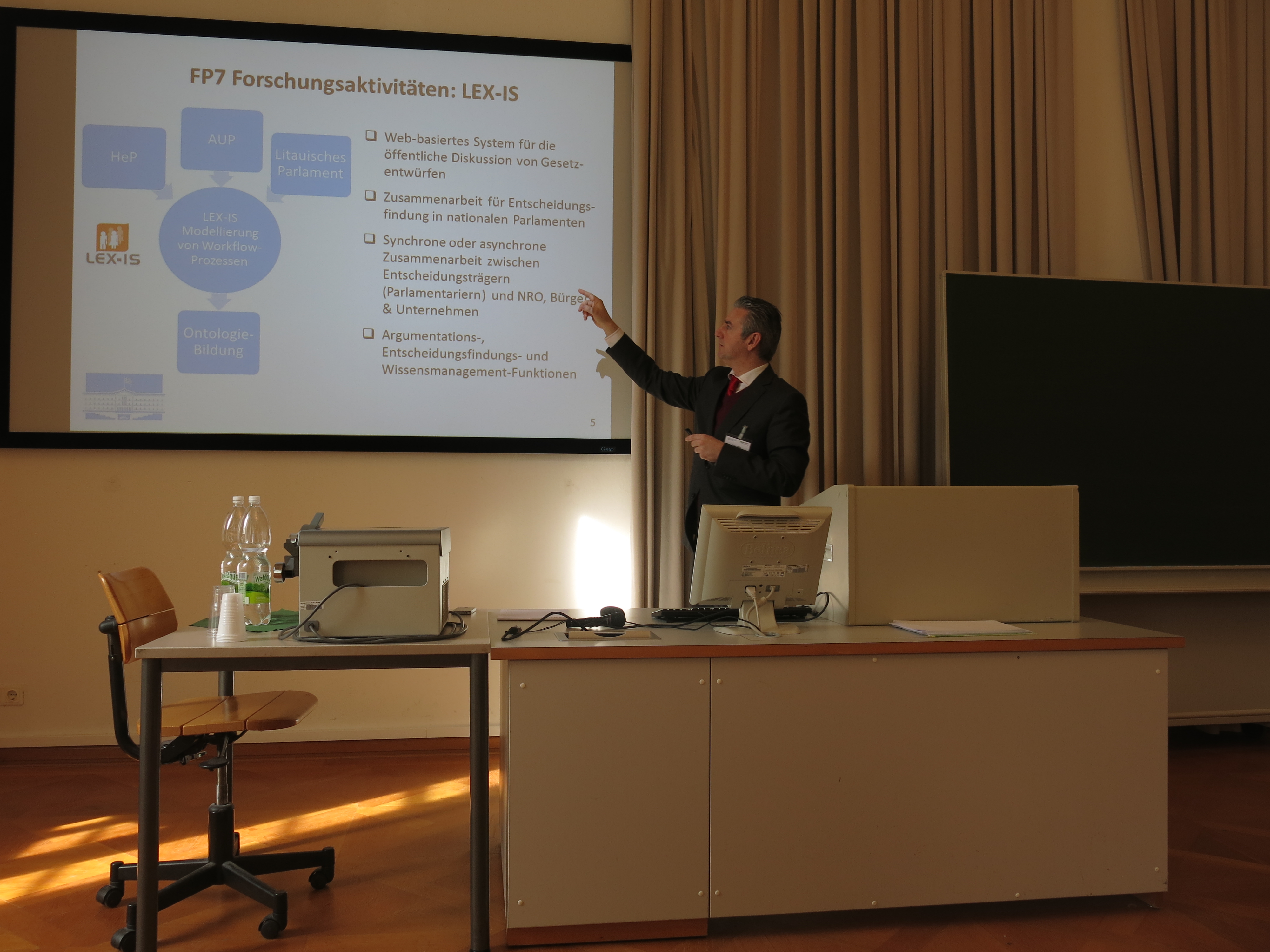
IRIS 2016 in Salzburg, Austria
At this year’s International Symposium for Legal Informatics (German: Internationales Rechtsinformatik Symposion, IRIS 2016) that took place between 25-27 February 2016 in the University of Salzburg, Austria, I had the opportunity to present the following paper:
Parliaments in the Digital Era – Innovation, Challenges, and Prospects
by Fotis Fitsilis, Dimitris Koryzis, Dimitris Spiliotopoulos, Günther Schefbeck
Abstract
“Parliaments are traditional organisations in the sense that they heavily rely on tradition. Their institutional identity, their structure, their Rules of Procedure often remain stable over long periods of time. This stability and conservatism is sometimes in direct contradiction with rapid technological progress in the last decades, particularly in the ICT domain. As parliaments struggle to maintain and enhance their institutional role within the new digital society, they tend to apply new technologies with a characteristic lag and in a rather unstructured way. At the same time, some Parliaments in Europe have clearly identified the possibilities that emerge through application of the new technologies in the area of legal informatics, in digital democracy with public participation, as well as in the digital transformation and parliamentary communication domain. By participating in a series of networking activities through European funded research projects (FP7), the Hellenic Parliament and the Austrian Parliament have placed themselves in the forefront of parliamentary innovation among their European counterparts.
The paper will first describe a range of technological challenges that modern parliaments face today. A range of innovative parliamentary actions and use cases will be presented that is closely related with parliamentary ICT research scientific activities, in a series of European funded projects. The networking activities of the two Parliaments (Hellenic and Austrian) in the context of participation in these European research projects are going to be put into the focus. The nature of these networks as well as of the non-parliamentary actors (Universities, research institutes, Civil Society Organisations, private companies, etc.) is going to be examined. In particular, data from the projects LEX-IS, +Spaces, NOMAD, ARCOMEM, and ΜΕΤΑLOGUE are going to be analysed. Finally, the paper will present the prospects that arise from the use of the latest ICT technologies in Parliaments in selected sub-topics.”

Presenting my paper @ the IRIS 2016
